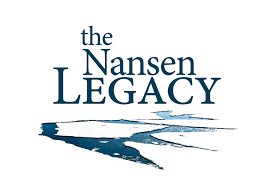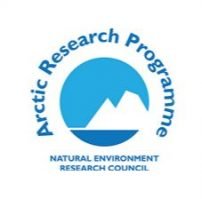Arctic Links
-
Mare Incognitum – Polar Night project
‘Mare Incognitum’ is the umbrella for several research projects exploring one of the least known marine ecosystems of the planet – the Arctic. We are situated in the Arctic and have the unique opportunity to study this exceptional marine system year round, including the Polar Night.
Research organisations and programmes
View Link: http://www.mare-incognitum.no/
-
MAREANO, the institute for seafloor mapping
MAREANO maps depth and topography, sediment composition, contaminants, biotopes and habitats in Norwegian waters. The results of the surveys are available on this website, visualised through maps.
International/regional organisations
View Link: http://www.mareano.no/en
-
Nansen LEGACY, Norway
Nansen LEGACY is a multidisciplinary initiative to understand and predict the natural and human influences on the Barents Sea ecosystem beyond the present ice edge. The Nansen LEGACY comprises a dedicated Norwegian national team of research excellence that has been assembled for the specific purpose of the 6-year project period (2018–2023).
Research organisations and programmes
View Link: http://site.uit.no/nansenlegacy/
-
Natural Environment Research Council (NERC)
NERC is the UK’s main agency for funding and managing research, training and knowledge exchange in the environmental sciences. Our work covers the full range of atmospheric, Earth, biological, terrestrial and aquatic science, from the deep oceans to the upper atmosphere and from the poles to the equator. We coordinate some of the world’s most exciting research projects, tackling major issues such as climate change, environmental influences on human health, the genetic make-up of life on Earth, and much more. NERC is part of UK Research & Innovation, a non-departmental public body funded by a grant-in-aid from the UK government.
Twitter link: @NERCscience
View Link: http://www.nerc.ac.uk/research/funded/programmes/arcticocean/
-
NERC Arctic Office
The Arctic Office is funded by the Natural Environment Research Council (NERC) and hosted at British Antarctic Survey (BAS). It is tasked with supporting and helping coordinate research and logistical activities in the Arctic region by the UK Arctic science community. It incorporates the management of the UK Arctic Research Station at Ny-Ålesund on Svalbard.
Research organisations and programmes
View Link: https://www.arctic.ac.uk/
-
NERC Arctic Research Programme, UK
The Arctic Research Programme (or ARP) was the first large research programme in the Arctic funded by NERC. It was launched in 2010 to address specific topics of scientific uncertainty in the Arctic region and is co-ordinated and managed at NERC’s British Antarctic Survey. The £15m research effort over a five-year period addressed key questions about the causes of environmental change in the Arctic and how they can impact on levels of greenhouse gas and influence extreme weather events in the future.
Research organisations and programmes
View Link: http://arp.arctic.ac.uk/
-
North Atlantic Marine Mammal Commission (NAMMCO)
NAMMCO is an international regional body for cooperation on conservation, management and study of cetaceans (whales, dolphins and porpoises) and pinnipeds (seals and walruses) in the North Atlantic. The members of NAMMCO — Faroe Islands, Greenland, Iceland and Norway — are committed to sustainable and responsible use of all living marine resources, including marine mammals.
International/regional organisations
View Link: https://nammco.no/
-
North Pacific Marine Science Organisation (PICES)
The North Pacific Marine Science Organization (PICES), an intergovernmental scientific organization, was established in 1992 to promote and coordinate marine research in the northern North Pacific and adjacent seas. Its present members are Canada, Japan, People’s Republic of China, Republic of Korea, the Russian Federation, and the United States of America. FUTURE (Forecasting and Understanding Trends, Uncertainty and Responses of North Pacific Marine Ecosystems ) is an integrative Scientific Program undertaken by the member nations and affiliates of PICES to understand how marine ecosystems in the North Pacific respond to climate change and human activities, to forecast ecosystem status based on a contemporary understanding of how nature functions, and to communicate new insights to its members, governments, stakeholders and the public.
International/regional organisations
View Link: http://meetings.pices.int/
-
Norwegian Polar Institute
The Norwegian Polar Institute is Norway’s central governmental institution for scientific research, mapping and environmental monitoring in the Arctic and the Antarctic. The Institute advises Norwegian authorities on matters concerning polar environmental management and is the official environmental management body for Norwegian activities in Antarctica.
International/regional organisations
View Link: http://www.npolar.no/en/
-
Norwegian University of Science and Technology (NTNU), Norway
NTNU has the main responsibility for higher education in technology in Norway, and it is the country’s premier institution for the education of engineers.
Research organisations and programmes
View Link: https://www.ntnu.edu/











